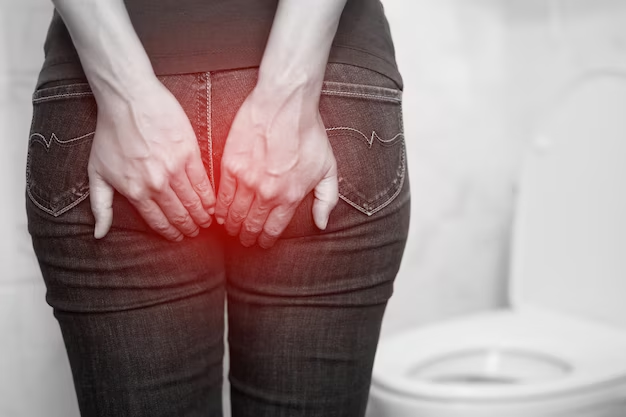Your Guide to What Can Cause Incontinence
What You Get:
Free Guide
Free, helpful information about Incontinence FAQ and related What Can Cause Incontinence topics.
Helpful Information
Get clear and easy-to-understand details about What Can Cause Incontinence topics and resources.
Personalized Offers
Answer a few optional questions to receive offers or information related to Incontinence FAQ. The survey is optional and not required to access your free guide.
Discover What Causes Incontinence and Resources for Financial Relief
Incontinence, a condition marked by the loss of bladder control, affects millions of people worldwide. It can range from the occasional leakage when sneezing or coughing to a sudden, uncontrollable urge to urinate. While it’s a common issue, understanding its causes can be the first step toward finding effective solutions.
Common Causes of Incontinence
Weak Pelvic Floor Muscles: These muscles support the bladder and urethra, controlling urine flow. They can weaken due to childbirth, aging, or surgery, leading to stress incontinence.
Overactive Bladder (OAB): This type involves a sudden urge to urinate, often resulting in urge incontinence. Lifestyle and dietary factors, such as caffeine and alcohol consumption, may exacerbate symptoms.
Neurological Disorders: Conditions like Parkinson’s disease, multiple sclerosis, or spinal injuries can interfere with nerve signals involved in bladder control.
Hormonal Changes: Especially in women, hormonal changes during menopause can affect bladder muscles and lead to incontinence.
Urinary Tract Infections (UTIs): These can irritate the bladder, worsening or temporarily causing urgency or frequency incontinence.
Medical Conditions: Diabetes or prostate issues in men may lead to incontinence-related symptoms.
Medications: Certain prescriptions, especially diuretics or muscle relaxants, can increase the risk of incontinence.
Seeking Help: Government Aid and Financial Assistance
Dealing with incontinence often means facing medical expenses for treatments, such as medications, pelvic floor therapy, or surgical procedures. Fortunately, there are financial aid options available to help alleviate the burden.
Understanding Your Options
Government Programs: Consider looking into Medicare or Medicaid, which can cover some of the costs associated with incontinence treatment.
Non-Profit Organizations: Groups like the National Association for Continence (NAFC) offer resources and sometimes financial assistance for those in need.
Insurance Coverage: Review your health insurance policy for specific coverage regarding incontinence treatments and associated supplies.
Medical Loans: If necessary, medical loan companies provide tailored lending solutions to cover out-of-pocket expenses.
Community Health Centers: Many offer sliding scale services based on income, reducing the financial strain on affected individuals.
Expanding Knowledge for Structured Support
Education is invaluable when navigating health challenges and financial responsibility. Beyond immediate relief, exploring educational grants, especially for healthcare, can empower individuals with broader management strategies and career advancement potential.
Available Resources
Educational Grants for Healthcare: Federal and state programs may provide financial aid for courses related to healthcare, nursing, or medical administration.
Debt Relief Solutions: For those facing overwhelming medical bills, credit counseling and debt management programs offer structured pathways to financial recovery.
Credit Card Solutions: Some credit card companies offer hardship programs or balance transfer options to spread costs over manageable terms.
Leveraging these resources not only aids in managing incontinence financially but also opens doors to potential career growth and enhanced quality of life.
💡 Financial Assistance & Educational Resources:
- 📑 Medicare/Medicaid: Check eligibility for covering medical costs.
- 💼 Non-Profit Support: NAFC resources and assistance.
- 💳 Credit Solutions: Explore hardship programs on existing cards.
- 📚 Educational Grants: Search for healthcare-specific financial aid.
- 🌐 Community Health: Seek affordable sliding scale services.
- 🛡 Insurance Review: Clarify coverage details for incontinence.
Understanding what causes incontinence is just the beginning. With the right resources, you can manage the financial impact effectively, paving the way to improved health and financial stability.
What You Get:
Free Incontinence FAQ Guide
Free, helpful information about What Can Cause Incontinence and related resources.

Helpful Information
Get clear, easy-to-understand details about What Can Cause Incontinence topics.

Optional Personalized Offers
Answer a few optional questions to see offers or information related to Incontinence FAQ. Participation is not required to get your free guide.


Discover More
- a Patient You Are Caring For Uses Incontinence Briefs
- Are Incontinence Products Tax Deductible
- Are Incontinence Supplies Covered By Medicare
- Are Incontinence Supplies Tax Deductible
- Can a Bladder Infection Cause Urinary Incontinence
- Can a Kidney Stone Cause Incontinence
- Can a Urinary Tract Infection Cause Incontinence
- Can a Uti Cause Incontinence
- Can Constipation Cause Incontinence
- Can Constipation Cause Urinary Incontinence
